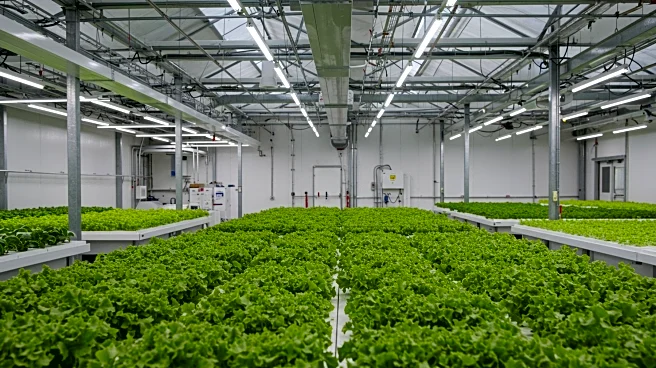What's Happening?
The clean agriculture industry, which focuses on growing food in bioreactors rather than traditional fields, is experiencing significant challenges but continues to gain momentum globally. Despite technical scaling issues, regulatory delays, and a challenging investment climate, the industry is advancing. Some governments, including Italy and several U.S. states, have attempted to impose bans on cultivated meat, viewing it as more of a science experiment than a viable food system evolution. However, countries like Australia, New Zealand, Singapore, the U.S., and Israel have approved the sale of cultivated meat for human consumption. Additionally, the UK has approved cultivated meat for pets. Over twenty governments, including major economies such as the UK, EU, Canada, China, India, Saudi Arabia, UAE, and Brazil, are investing in this technology and working towards further approvals.
Why It's Important?
The global momentum behind clean agriculture is driven by pressing issues such as food security and climate resilience. Conventional agriculture is increasingly unable to meet the demands of a growing population due to climate change, resource constraints, and geopolitical factors. Cultivated meat and precision fermentation offer solutions by shortening supply chains, reducing greenhouse gas emissions, and easing pressure on land and water resources. These technologies have the potential to support farmers in regenerating soils and restoring ecosystems while meeting consumer demand. The industry is making significant progress in reducing production costs, with companies achieving media costs close to $1 per liter, down from previous estimates of $6.50 per liter. This cost reduction is crucial for achieving price parity and accelerating consumer adoption.
What's Next?
The clean agriculture industry is poised for further growth as it continues to overcome challenges and gain regulatory approvals. The focus is now on scaling production to achieve cost-effective solutions that consumers can afford. As more governments invest in and approve these technologies, the role of cultivated meat and precision fermentation in the food system is expected to expand significantly. Achieving price parity remains a key milestone, and once reached, consumer adoption is likely to accelerate rapidly. The industry is moving forward with significant momentum, despite skepticism and attempts to impose bans.
Beyond the Headlines
The clean agriculture industry represents a shift towards more sustainable food production methods that could have long-term implications for global food security and environmental sustainability. By decoupling food production from traditional agriculture, these technologies offer a way to address the challenges posed by climate change and resource constraints. The industry's progress echoes the early days of solar and wind energy, suggesting a potential for transformative change in the food system.









